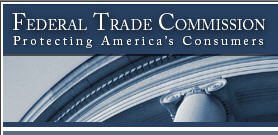 I just returned from a family vacation to Disneyworld. Vacations are an easy way to run into personal finance trouble through overspending, and Disneyworld is the ultimate test. Threading my way through the jam-packed "World of Disney" gift shop--which someone told me has higher annual gross sales than any single store in its category in the world--I couldn't help but notice all of the overflowing shopping baskets and wonder: "How many people can't afford a quarter of the stuff they are buying?" (as well as, "Should I be investing in Disney?")
I just returned from a family vacation to Disneyworld. Vacations are an easy way to run into personal finance trouble through overspending, and Disneyworld is the ultimate test. Threading my way through the jam-packed "World of Disney" gift shop--which someone told me has higher annual gross sales than any single store in its category in the world--I couldn't help but notice all of the overflowing shopping baskets and wonder: "How many people can't afford a quarter of the stuff they are buying?" (as well as, "Should I be investing in Disney?")Tallying up the vacation bill for my own family, I was relieved to learn that we spent roughly what my wife M and I expected--though we did exceed our spending plan by more than $200. Here's what I think contributed to our "success," and where there was room for improvement.
Having a plan
M and I decided on Disneyworld for the family vacation back in March. Once the decision was made, we set a rough spending plan that not only covered the "fixed" expenses of airfare and park tickets (a week at a timeshare condo M's father gave us for Christmas covered our lodging), but also "discretionary" expenses like meals, pocket money, parking, etc. That proved helpful in several ways.
First, it set our expectations for what the trip probably was going to cost ahead of time, helping us avoid the unpleasantness of "sticker shock" after tallying up what we spent when we got back home. Second, planning months ahead gave M and I time to come together on how much we were going to spend on what things ("We're going to eat out how many times?"). Third, it gave us an incentive to save money in the months before we left to make sure we could afford the trip. And finally, it set up some boundaries on our spending that helped us make decisions when faced with Disney's overwhelming choices for food, fun, and merchandise.
Setting limits for the kids
Controlling the spending of my 12-year-old stepdaughter and the friend she brought along proved to be both a success and our biggest headache. Each child had a specific amount of pocket money for the week, which M and I set beforehand (in conjunction with the friend's mother). That, at least, allowed us to know exactly how much spending was going toward fun money for the kids, and gave us leverage to say "No" to one more stuffed Pooh doll when the money ran out.
However, to prevent the kids from spending all their cash in one or two days, M and I served as their personal "ATM," dispensing money as needed. Bad move. That was the biggest source of friction for our family on the entire trip, as well as a hassle to track and manage. Next time, I'd divide the pocket money up by the number of days on the trip and give the kids a per-diem amount before we left for the park. If candy and frozen drink purchases leave them tapped out by 10 a.m., oh well.
Tracking what we spent
I'll be honest: I had little idea of how much we were spending during the vacation. I brought a notebook and had every intention of keeping track as we went. However, juggling a two-year-old while checking the time for our next Fastpass ride and serving as an ATM machine was more than enough to handle at once. M was great about pushing us to sit down and discuss each day's spending back at the condo, but I was usually so tired--and perhaps a bit disappointed for not being a better recordkeeper--that my heart wasn't in it. I feel fortunate we stayed close to our spending plan overall.
Money aside, our Disneyworld trip was an investment that paid dividends in some truly wonderful family memories and experiences. And for two parents working hard to knit together a blended family of children and stepchildren, you just can't put a price on those.



